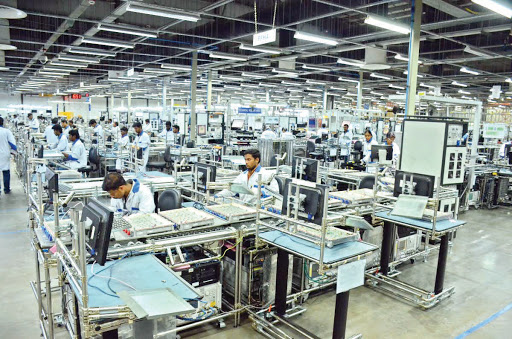Electric manufacturing is rapidly transforming the industrial landscape, playing a pivotal role in the global transition to a more sustainable and electrified future. This sector encompasses the production of a wide range of electric and electronic components, devices, and systems, from batteries and electric motors to renewable energy technologies and smart grid infrastructure.
TheERPHub is a leading ERP Software Company in India. We provide ERP Software in India for manufacturers, traders, services, transport industries with customization.

Key Drivers of Growth in Electric Manufacturing:
- Increasing Demand for Renewable Energy: The growing demand for renewable energy sources such as solar, wind, and hydro power is driving significant growth in the electric manufacturing sector.
- Electrification of Transportation: The global shift towards electric vehicles (EVs) is creating a surge in demand for electric motors, batteries, and charging infrastructure, fueling the expansion of electric manufacturing.
- Advancements in Technology: Continuous advancements in battery technology, power electronics, and energy storage systems are enabling the development of more efficient and cost-effective electric products.
- Government Policies and Incentives: Governments worldwide are implementing policies and incentives to promote the adoption of electric technologies, such as subsidies for electric vehicles and renewable energy projects, which are stimulating growth in the electric manufacturing sector.
Key Challenges and Opportunities:
- Supply Chain Disruptions: The global supply chain has faced significant disruptions in recent years, impacting the availability of critical components and raw materials for electric manufacturing.
- Competition: The electric manufacturing sector is highly competitive, with companies constantly striving to innovate and differentiate their products.
- Skilled Workforce: The industry requires a skilled workforce with expertise in areas such as electrical engineering, electronics, and software development.
- Environmental Sustainability: Ensuring the environmental sustainability of electric manufacturing processes is crucial, including minimizing waste, reducing energy consumption, and promoting the use of recycled materials.
The Future of Electric Manufacturing:
The future of electric manufacturing holds immense potential. Continued advancements in technology, coupled with supportive government policies and growing consumer demand, are expected to drive significant growth in this sector.
- Integration of Artificial Intelligence (AI) and the Internet of Things (IoT): The integration of AI and IoT technologies will enable the development of smarter, more efficient, and more connected electric systems.
- Modular and Customized Manufacturing: The rise of modular and customized manufacturing techniques will enable the production of more personalized and adaptable electric products.
- Circular Economy Principles: The adoption of circular economy principles will minimize waste and maximize resource utilization throughout the electric manufacturing lifecycle.
Conclusion:
Electric manufacturing is a dynamic and rapidly evolving sector that is playing a critical role in shaping a sustainable and electrified future. By addressing the challenges and capitalizing on the opportunities, the electric manufacturing industry can continue to innovate and drive progress towards a cleaner, more efficient, and more interconnected world.





